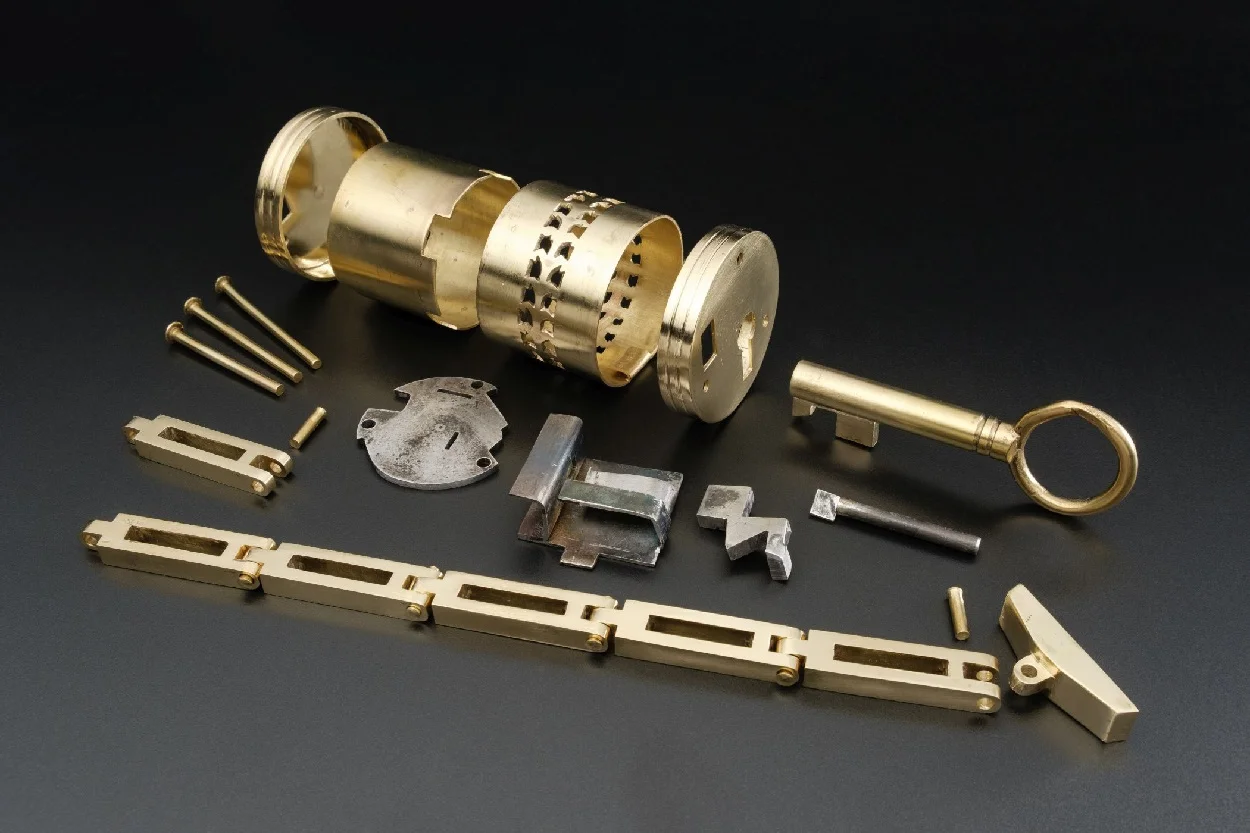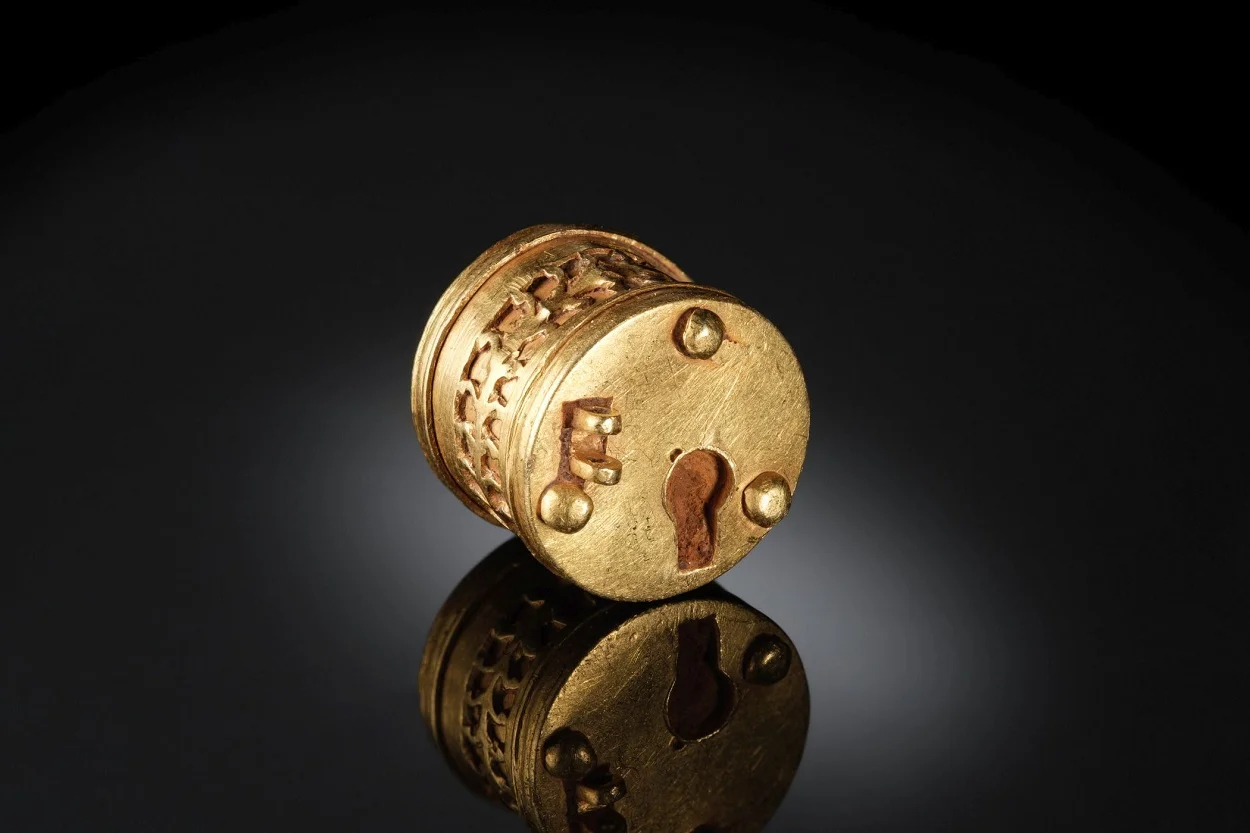The Westphalia-Lippe Regional Association (LWL) has revealed the discovery of a gold and iron Roman-era box lock, unearthed in North Rhine-Westphalia, Germany.
The lock was discovered in 2023 by licensed detectorist Constantin Fried during a metal detecting survey in a field near Petershagen-Frille, in the Minden-Lübbecke district.
After reporting his discovery to LWL Archaeology for Westphalia in Bielefeld, archaeologists identified the object as a miniature Roman box lock, dating to the 3rd or 4th century AD.
In a press statement, LWL announced that the lock is entirely unique in Europe, as it is a miniature version of a standard Roman box lock, smaller than a modern one-euro coin.
The lock is constructed from two cylindrical metal sheets, sealed with lids and secured with rivets. The outer casing is intricately decorated with two circumferential rows of opposing openings.
“The lock was certainly made in the provincial Roman area. Based on its shape, technical structure and style of decoration, it can be dated to the 3rd or 4th century AD,” said LWL cultural director Dr. Barbara Rüschoff-Parzinger.

“These locks probably served to protect chests or similar items, similar to today’s jewellery boxes,” added Rüschoff-Parzinger.
Archaeologists speculate that the lock may have reached North Rhine-Westphalia through trade or as a souvenir brought home by a member of the local elite returning from Roman military service.
Researchers utilised 3D neutron computer tomography (CT) to determine if the lock had a functioning mechanism. The CT cross-sections revealed iron components, including a frame with a spring, a presumed guide rail, a bolt, a base plate, and a pin.
“They also showed that the mechanism is largely complete, but damaged, because someone had obviously poked around in the lock at the time, probably to break it open or to remove a blockage,” says the finder Constantin Fried.
Using comparative finds and the detailed imaging results, LWL experts were able to reconstruct the lock’s mechanism and its missing key. A restorer from the LWL Archaeology Department even created a fully functional replica of the lock, scaled up to four times its original size.
“The extraordinary find from Petershagen shows the high level of craftsmanship of the provincial Roman blacksmith and metalworking trade,” says Rüschoff-Parzinger. At the same time, the find gives the LWL archaeologists new clues about the relationships between the local elites in Westphalia and the Roman Empire, as well as the possible local significance of its site.
Header Image Credit : LWL /S. Brentführer
Sources : LWL





